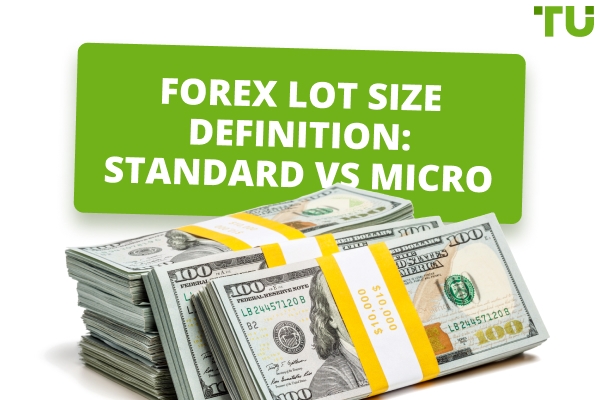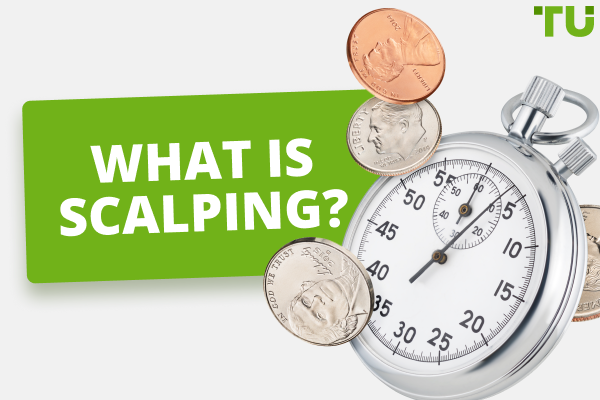What Is The Meaning Of STP In Forex Brokerage?
A straight-through processing (STP) broker routes clients' orders directly to liquidity providers without intervention, ensuring quick and transparent order execution. They offer low spreads and fees while providing direct access to the market through transparent order execution.
The often-complicated world of Forex involves a multitude of participants, from retail traders to institutional investors to brokers, with each of those categories often featuring a subset of smaller categories. This is the case with Forex brokers, of which there are many types, including market makers, STP brokers, ECN brokers, NDD brokers, and more. In this article, we’ll be answering all your questions about STP brokers, explaining what they are, how they work, and how they compare to other types of brokers.
How Do STP Brokers Make Money?
They may charge their client commission, (e.g. ($X per $million), or apply a markup that’s added into the spread that their clients see, or both. Put simply, the STP broker’s profit is the difference between what they charge retail clients and the fees charged by their liquidity provider.
How do you know if a broker is STP?
Usually, you can tell by the transaction speed, which can be seen on most trading platforms. If the average transaction speed is between 80 and 140 milliseconds, they’re most likely an STP broker. Other indicators are tighter spreads, fewer restrictions on trading styles, and regulation transparency.
How do liquidity providers work in Forex?
Liquidity providers in Forex supply continuous buy and sell prices for currency pairs, enhancing market depth. STP brokers connect to these providers, accessing liquidity pools to execute trades at optimal prices, benefiting traders with reduced slippage and competitive spreads.
What is STP trading, and how does it work?
STP stands for straight-through processing, signifying automated payment processes conducted directly through electronic transfers, eliminating any manual intervention. In Forex, an STP broker is a brokerage firm that provides traders with direct access to the currency markets. Unlike market makers, STP brokers execute trades without internalizing them, ensuring transparency and fair execution by routing orders directly to liquidity providers. This approach minimizes potential conflicts of interest and allows traders to interact with real market conditions efficiently.
STP brokers differ from other types of Forex brokers, such as Market Makers or ECN (Electronic Communication Network) brokers:
Market makers, for instance, function by internalizing trades within their platform, often taking the opposing side of clients' positions. This model may lead to potential conflicts of interest.
On the other hand, ECN brokers operate as intermediaries, connecting traders directly to the broader market.
An STP broker facilitates direct access to the currency markets for traders. STP brokersexecute tradeswithout internalizing them, sending orders directly to liquidity providers for transparent and fairexecution. This model reduces potential conflicts of interest, providing traders with real marketconditions and competitive spreads. STP brokers streamline the trading process, ensuring efficient and direct transactions without the need for a dealing desk.
👍 Pros of STP brokers
• Low Spread: When you trade with an STP broker, you get very low bid-ask spreads. STP brokers connect to multiple liquidity providers, offering you as a trader access to diverse pricing.
• Volatility: The price quotes you get as a trader are usually more volatile, making it easier to implement certain trading strategies, such as scalping.
• Direct Market Access: You get direct access to the interbank market, enhancing liquidity and reducing the likelihood of requotes.
• Transparent Execution: STP brokers offer transparent and fair-trade execution by routing orders directly to liquidity providers.
👎 Cons of STP brokers
• Costs: While spreads can be better than with other types of brokers, you may incur costs through spreads or commissions, impacting your overall trading expenses.
• Limited Market Depth: In some cases, STP brokers might face limitations in offering extensive market depth compared to ECN brokers.
• Limited leverage: STP brokers provide weaker leverage than ECN brokers, and some STP platforms do not allow deals exceeding the deposit at all. This means that clients must have enough funds in their account to conduct trading operations.
• Not all exchanges support STP trading technology.
Choosing a broker for a beginner
As a broker acts as an intermediary between you as a trader and the currency market, it’s important to choose the right one. Their services can have a significant impact on your overall trading experience. At the end of the day, every broker wants to make a profit, but they also should prioritize their customers’ trading experience to keep them on board.
When selecting a broker, you should aim for one that’s reliable, trustworthy, and transparent. An unreliable or untrustworthy broker could impact your trades negatively, leading to losses or unfavorable trading conditions. Assess these aspects of each broker before engaging with their services:
Order Execution Speed: Find out how fast orders are executed on the platform, prioritizing quick executions. STP brokers' execution times may be inconsistent, while ECN brokers offer the fastest times.
Security: Look for a secure trading platform that uses two-factor authentication and encryption technology.
Charting Tools: To get the most out of your trading experience and perform technical analysis, seek out advanced charting tools that can be used to analyze market trends.
Choosing a broker isn’t simple, and it’s advisable to do extensive research before investing your hard-earned capital into one broker’s services.
STP and ECN broker: which one is better?
Choosing which one is better depends on your individual trading preferences and goals.
An ECN broker routes your orders straight through to the central interbank market, filling it at the best market rate with no dealer intervention. The bank filling your order doesn’t know your identity or where your stop-loss order is placed. ECN brokers provide routing services for your trades, by utilizing an electronic communication network to aggregate liquidity from multiple participants, including banks, financial institutions, and retail traders. This model allows you to access real-time pricing, trade on tight spreads, and interact with a transparent order book.
STP technology on the other hand, uses electronic processing to pass your trades directly to the market. STP brokers pass on your orders directly to a second party, such as another STP broker, market broker, or even an ECN broker. The routing of each trade can vary.
Both ECN and STP brokers are non-dealing desk brokers, so your orders are never routed to the dealing desk. This prevents conflicts of interest between you and the broker. Your order is filled completely electronically, at the best market price. Both models prioritize transparent trade execution by providing access to genuine market prices. They both also aim to minimize conflicts of interest by avoiding the internalization of trades.
There are some key differences, however. ECN brokers often charge a commission in addition to spreads, while STP brokers typically incorporate costs into the spread, meaning less transparency. Some ECN brokers may require you to make a higher minimum deposit compared to STP brokers. Lastly, ECN brokers provide you with access to market depth, displaying a transparent order book, whereas STP brokers may have limitations in offering extensive market depth.
STP and NDD broker: which one to choose?
NDD stands for No Dealing Desk, and an NDD Forex broker is a brokerage firm that operates without a dealing desk. In Forex, a dealing desk refers to an internal desk within a brokerage that processes clients' trade orders. NDD brokers, however, eliminate this internal desk, allowing client orders to be routed directly to the interbank market or other external liquidity providers. As both STP brokers and ECN brokers have no dealing desks, they are both NDD brokers.
Hybrid STP broker and market maker
An STP and market maker hybrid is a blended approach to providing forex services that combines the advantages of both types of brokers.
Customer orders first go through the STP processing system and are sent to the market for the best available price. If one is not found, the order can be routed to a market maker who provides execution on its own terms. In this way, execution is guaranteed even if there is no available liquidity in the market.
However, it is worth noting that a hybrid broker can use its own prices to fulfill orders if they cannot be fulfilled in the market. This may result in a small difference in cost.
Best STP Forex Brokers
Traders Union has conducted thorough research on dozens of Forex brokers and selected our top 5 STP brokers. We selected these based on:
| Broker | Fees | Min deposit | Best For |
|---|---|---|---|
$8 per lot | $0 | Beginners | |
None | $100 | Forex and CFD Trading | |
None | $100 | Scalping | |
None | $100 | Wide asset selection | |
0 to $3.5 per lot | $100 | AI tools |
How to start Forex trading with STP Broker?
As eager as you may be to get started trading currency pairs and making a profit, there are some steps you should take first.
Choose a Reliable Broker: Look for regulated brokers, assessing their reputation customer support, and platform. Check spreads, fees, and commissions. Make sure they have the right account types for what you need.
Open and Fund Account: Open an account with your chosen broker, providing the relevant documentation needed, and complete the registration process. Then, choose the payment method that suits you best, and fund your account.
Demo Trade: Before using your real capital, practice your trading strategies and familiarize yourself with the platform using a demo account. Practice placing buy and sell orders, analyzing charts, and managing risk, all using virtual money.
Start Trading: Once you're sufficiently confident in your trading style and ability, enter live trading. Start small and gradually increase your position sizes. Track your trades, analyzing your performance and looking for areas to improve. Stay updated on economic news, market trends, and technical indicators.
Becoming a successful Forex trader can feel a little daunting. Luckily, we’ve explained the process in an easy-to-understand and detailed guide, which you can read here: How to Start Forex Trading in 5 Steps.
Conclusion
In summary, STP brokers offer traders direct access to the Forex market with advantages such as low spreads, volatility, and transparent execution. However, it's essential that you are mindful of potential costs and limitations in market depth. The choice between STP and ECN brokers should align with your individual preferences and goals. Selecting a reliable broker is crucial for a positive trading experience, and thorough research is recommended before committing to a choice.
Glossary for novice traders
-
1
Volatility
Volatility refers to the degree of variation or fluctuation in the price or value of a financial asset, such as stocks, bonds, or cryptocurrencies, over a period of time. Higher volatility indicates that an asset's price is experiencing more significant and rapid price swings, while lower volatility suggests relatively stable and gradual price movements.
-
2
Investor
An investor is an individual, who invests money in an asset with the expectation that its value would appreciate in the future. The asset can be anything, including a bond, debenture, mutual fund, equity, gold, silver, exchange-traded funds (ETFs), and real-estate property.
-
3
Forex indicators
Forex indicators are tools used by traders to analyze market data, often based on technical and/or fundamental factors, to make informed trading decisions.
-
4
Forex Trading
Forex trading, short for foreign exchange trading, is the practice of buying and selling currencies in the global foreign exchange market with the aim of profiting from fluctuations in exchange rates. Traders speculate on whether one currency will rise or fall in value relative to another currency and make trading decisions accordingly. However, beware that trading carries risks, and you can lose your whole capital.
-
5
Forex market trend
In the Forex market, a “trend” is the label used to describe the general direction that the prices of currency pairs are moving in, over a specific period of time. Trends are basically the pattern that a currency pair appears to be following and can help traders determine when to enter and exit a trade.
Team that worked on the article
Jason Law is a freelance writer and journalist and a Traders Union website contributor. While his main areas of expertise are currently finance and investing, he’s also a generalist writer covering news, current events, and travel.
Jason’s experience includes being an editor for South24 News and writing for the Vietnam Times newspaper. He is also an avid investor and an active stock and cryptocurrency trader with several years of experience.
Dr. BJ Johnson is a PhD in English Language and an editor with over 15 years of experience. He earned his degree in English Language in the U.S and the UK. In 2020, Dr. Johnson joined the Traders Union team. Since then, he has created over 100 exclusive articles and edited over 300 articles of other authors.
Mirjan Hipolito is a journalist and news editor at Traders Union. She is an expert crypto writer with five years of experience in the financial markets. Her specialties are daily market news, price predictions, and Initial Coin Offerings (ICO).











